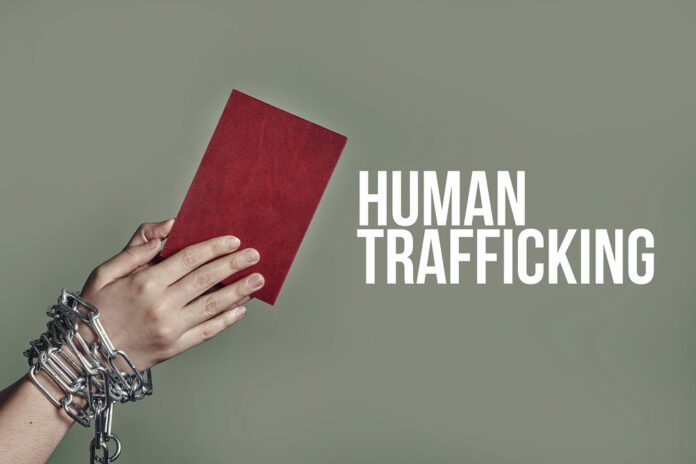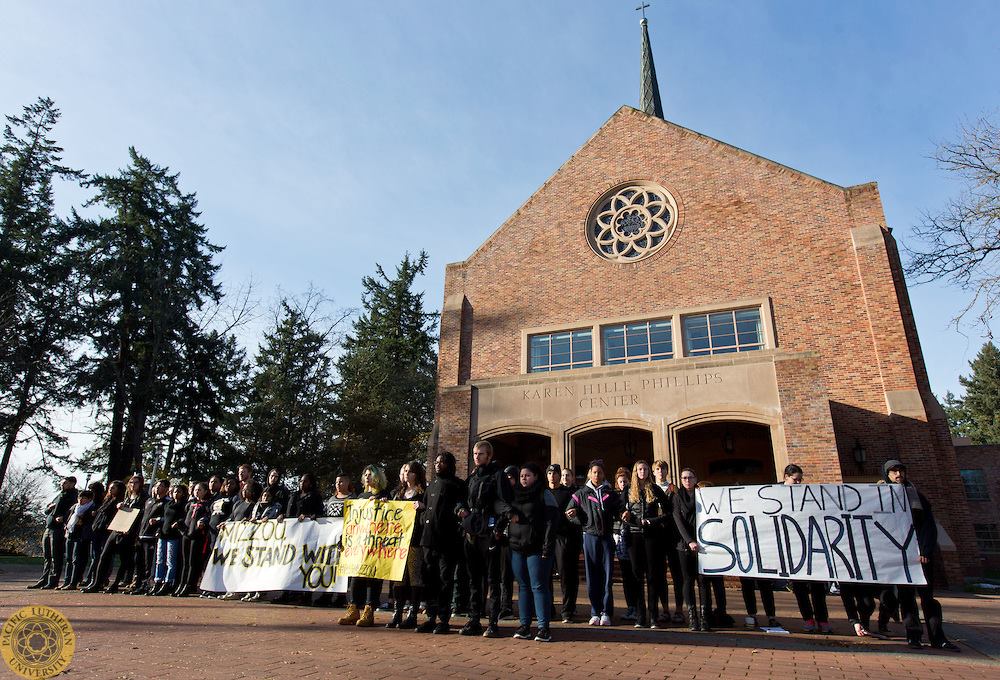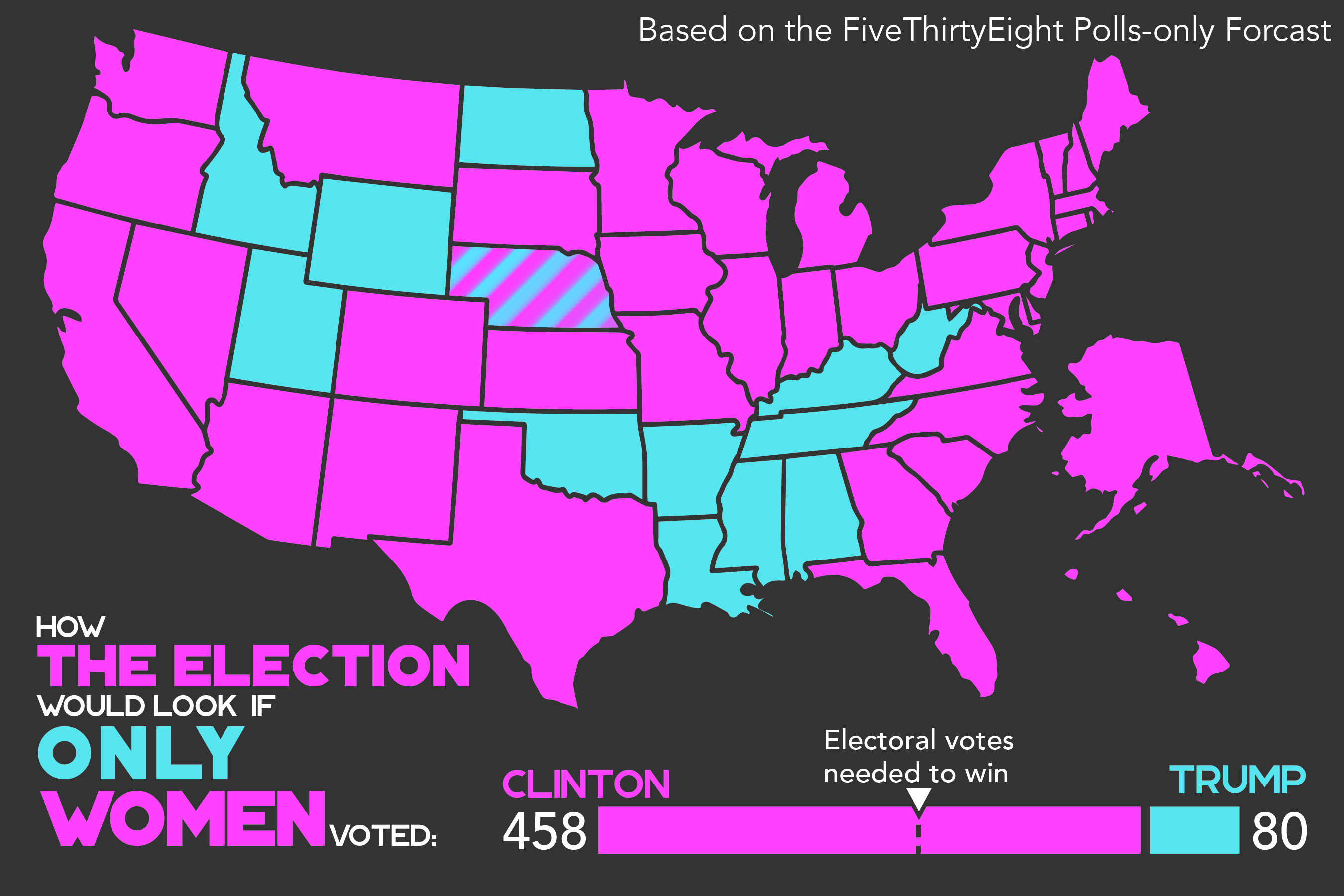By Gurjot Kang
News Editor
Imagine coming to terms as a teen that the next and perhaps last chapters of your life will likely be spent behind bars. This was the hopeless yet true reality Cyntoia Brown faced as a Tennessee teenager and victim of sex trafficking over a decade ago, in 2004.
At the young age of 16, Brown was prosecuted as an adult and sentenced to life in prison for shooting down 43-year-old Johnny Allen, the man who purchased Brown, a minor, for sex and drove her to his home. Brown, a runaway at the time, was sold to various men by her 24-year-old pimp “Cutthroat.” Brown claimed the charges of murder and robbery she faces all stemmed from an act of self-defense and feeling of fear that washed over her: fear of the danger Allen presented to her and fear of what “Cutthroat” would do to her if she didn’t bring back any cash for him.
As tragic as Brown’s story is, it’s unfortunately not uncommon. The issue of human trafficking ruins the lives of millions of youth around the world every day, especially vulnerable young runaways like Brown. For instance, as the National Center for Missing and Exploited Children states, similar to Brown’s situation, 1 in every 7 runaways, the majority of whom come from foster care or social services, have fallen prey to sex trafficking.
Human trafficking, often described as “modern-day slavery,” involves the exploitation and intimidation of individuals to commit forced acts of labor and/or sex. According to 2017 data from the International Labor Organization, ILO, “Women and girls are disproportionately affected by forced labor, accounting for 99% of victims in the commercial sex industry.”
Furthermore, 2016 data from ILO states that globally, there are approximately 40.3 million victims of trafficking—15.4 million of whom are in forced marriage and 24.9 million of whom are in forced labor. From these estimates, 1 out of 4 of those affected are kids, minors.
Following the sale of illegal drugs and arms, human trafficking is one of the richest criminal industries in the world. In the U.S., the issue of trafficking has spanned every state and territory. It is devastating to hear that our nation, with or without your knowledge, has profited for years from a billion dollar industry that participates in the sale of individuals as goods or commodities. In fact, there’s potentially 148 foreign products in the U.S. from 76 nations that may potentially have been created in the hands of child labourers, says the U.S. Department of Labor.
Human trafficking victims are often afraid to come forward or seek help for a multitude of reasons. For example, they might be scared to escape due to a fear that their pimp will retaliate violently against them or their loved ones and invoke some form of physical, mental, or emotional abuse, especially if they have forced them into labour as a result of a debt they’re holding above them. If the victims are undocumented immigrants, they might be afraid to entrust law enforcement as they don’t want to face deportation. Or they might fear law enforcement will deem them as illegal prostitutes instead of sex slaves suffering from a heinous crime against their bodies. If they’re young runaways, they might feel stuck, like there’s nowhere else to go, due to a lack of resources or money. Many of these runaways may also include LGBTQ youth who feel like outcasts in their families as a result of their queer identity. This queerness and the lack of acceptance of it may have led to some getting ousted from their loved ones, thus resulting in homelessness and increased chance of getting picked up by traffickers.
Sadly, over the years, while the issue of trafficking hasn’t slowed down, there have been little strides in progress made in recognizing people involved in trafficking as victims of a horrific crime not the perpetrators.
Almost 15 years after she was sentenced, Brown, now 30 years-old recently received clemency earlier this month from Tennessee’s State Governor Bill Haslam. She’ll soon be eligible for parole later this year. Prior to this decision, Brown was set to reside behind bars for around 51 years until she’d turn 67, only then would parole be even considered as an option. Tennessee state laws on juvenile sentencing have changed from 2004 till now and Brown’s case has even caused the state to evaluate or reconsider how it addresses cases involving young victims of sex trafficking. In the past, during her case trial, Brown has been described as a “teen prostitute” instead of a “child sex slave” or survivor of human trafficking.
Brown’s case and the ability of youth like her, who have dealt with traumatic and abusive pasts or are victims of trafficking, to suffer at the hands of states prosecutors speaks to the larger failing of our criminal justice system to protect our youth, especially people of color and those who have been sexually exploited, from unfair, harsh sentencings and being tried as adults. This is another example of how a lack of government oversight or federal action on policies surrounding trafficking and juvenile prosecution has rendered incompetent results for the youth who as an outcome, suffer at the feet of the prison industrial complex.
Brown never got to take the stand at her trial and tell the jury her side of the story: how she fell prey to trafficking, what it was like to be sold over and over again, beaten, and taken advantage of. Even in a 2011 documentary, a law enforcement official can be seen asking Brown, a teenager at the time, about her pimp, “So how come you stayed with him?” To which she responds, “You’re not listening, I made him money. He wasn’t gonna let me go anywhere. He told me he’d kill me.” While authorities and others may have not listened to Brown’s story back then, many are hearing what she has to say today loud and clearly. Thousands have shown support all over the nation, writing message or signing online petitions begging for clemency for Brown. After calls from celebrities, state and U.S. gov’t officials, and signs of protest, Brown will take her first step closer to freedom on August 7 when she’ll be released on parole.
This revelation and step towards progress, although served over a decade late, has developed right before January 11, National Human Trafficking Awareness Day and amidst the month of January, “National Slavery and Human Trafficking Prevention Month.”
With her associate degree in hand and working on her bachelor’s, Brown wants to work with youth struggling in Tennessee juvenile system, just like she once was. After many years, Brown maintains her sense of hope. After the system failed, she’s now been given a new opportunity to live a more liberating life.
Information
January marks “National Slavery and Human Trafficking Prevention Month.” Here are some ways you can address and bring awareness to the issue of human trafficking:
- Educate yourself and inform others about the importance of learning about the issue of human trafficking. Spread awareness to the problem by taking the time to get the facts and research the issue.
- Learn the signs so that you know how to spot an incident of human trafficking. According to the U.S. Department of Health and Human Services, some indicators that an individual is getting exploited include signs of physical abuse, mental trauma (suffering from depression, anxiety, sense of shock), drug or alcohol addiction, lack of self-esteem, blaming oneself or carrying a lot of guilt, they’re receiving many lavish gifts likely from an older man, they become increasingly isolated from loved ones, they’re unaware of their current location (city, state), etc. To learn more about how to spot the signs of human trafficking, check out this video: https://tinyurl.com/KnowTheSigns1
- Volunteer or donate to a local organization combating the issue of trafficking, such as the Pierce County Coalition Against Trafficking, Stolen Youth, Seattle Against Slavery, API Chaya, Federal Way Coalition Against Trafficking, and more.
- If you need assistance or someone you know might be a victim of trafficking, contact the National Human Trafficking Hotline at 1-888-373-7888 or text “HELP” or “INFO” to 233733 (“BeFree). You can also chat online with an advocate at https://humantraffickinghotline.org/chat. Help is confidential and available 24/7 in over 200 different languages.
Sources
https://www.nsvrc.org/blogs/january-human-trafficking-awareness-month https://www.dhs.gov/blog/2017/01/03/january-national-slavery-and-human-trafficking-prevention-month-join-fight
https://www.acf.hhs.gov/otip/success-story/hotline2018
https://www.acf.hhs.gov/archive/otip/resource/fact-sheet-identifying-victims-of-human-trafficking
https://www.dosomething.org/us/facts/11-facts-about-human-trafficking
http://thecnnfreedomproject.blogs.cnn.com/category/the-facts/the-number/
http://www.ilo.org/global/topics/forced-labour/lang–en/index.htm
http://www.ilo.org/global/about-the-ilo/newsroom/news/WCMS_574717/lang–en/index.htm
https://polarisproject.org/human-trafficking/facts
https://www.safehorizon.org/get-informed/human-trafficking-statistics-facts/#definition/
https://www2.ed.gov/about/offices/list/oese/oshs/factsheet.html
https://www.vox.com/2019/1/10/18177405/trump-tape-human-trafficking-border-wall
https://www.cnn.com/2019/01/14/perspectives/human-trafficking-fight/index.html
https://www.cnn.com/2019/01/07/us/tennessee-cyntoia-brown-granted-clemency/index.html




















